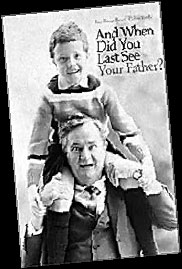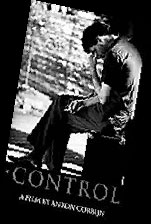Reviews
Films
And When Did You Last See Your Father?

Directed by Anand Tucker, starring Jim Broadbent, Colin Firth, Juliet Stevenson
The title has nothing to do with WF Yeames's painting; it is about the agony of trying to remember a dead father, really remember the last time he was properly himself, before the spores of illness invaded his personality and the insidious, gradual process of dying began.
Blake Morrison's bestselling and highly influential memoir from 1993, about an ambiguous, painful reconciliation with his dying father, has here been turned into an intelligent and heartfelt film.
David Nicholls' clear adaptation intercuts between the unendurable pathos of the father's deathbed, and the son's childhood memories in flashback.
Jim Broadbent is on terrific form as Morrison's father Arthur, a country GP with a rakish, raffish addiction to venial scams and dodges, with Juliet Stevenson as his long-suffering wife.
Colin Firth is the tight-lipped Blake himself, still needing closure after a lifetime's swallowed rage, still seething at Arthur's blustering refusal to congratulate him on his successes in literary London. When Arthur becomes ill, Blake is prevailed upon to return to the family home, to face the fact that Arthur is dying, and to have it out with him, especially about the family's darkest secret: Arthur's apparent affair with their Auntie Beaty (Sarah Lancashire).
The family home is one big madeleine, and Blake finds himself remembering a hundred little humiliations and agonies, a thousand petty lies and evasions, but also acts of kindness and love, and he comes to see how Arthur was a flawed adult, like everyone else.
Perhaps an adaptation cannot convey the drama of an internal, first-person narrative. The passage in the book in which Morrison finds himself masturbating in the bath is here hardly shocking at all. Colin Firth is simply shown squirming under opaque bathwater.
Control

Directed by Anton Corbijn, starring Sam Riley, Samantha Morton, Craig Parkinson, Alexandra Maria Lara
Ian Curtis's great and terrible prophecy, the one about love tearing us apart, is followed through to its fulfilment in Anton Corbijn's glorious movie, filmed in stunning high-contrast monochrome by cinematographer Martin Ruhe.
It is the best film of the year: a tender, bleakly funny and superbly acted biopic of Curtis, the legendary lead singer of new wave band Joy Division, who in 1980 committed suicide on the eve of his first US tour: suffering from epilepsy and depression, agonised by a failing marriage, stunned by the ambiguous waves of violence and nihilism his music had unleashed and terrified by the accelerating bandwagon of celebrity.
And all this in an impossibly distant age when no one seemed to have the smallest clue how to manage either chronic illness or pop music careers. It's a film that says goodbye to the English 1970s as fiercely as Withnail bade farewell to the 60s.
Sam Riley is outstanding as the sensitive, awkward Curtis, and Samantha Morton gives a career-best performance in the self-effacing role of Deborah, his almost child bride, the teenage sweetheart whose heart he was to break - with his own shattered as collateral damage.
Toby Kebbell is brilliant as the band's wisecracking manager, Rob Gretton, and Craig Parkinson does Tony Wilson's memory proud, playing the remarkable aesthete-entrepreneur who put Joy Division in front of the television cameras.
The Guardian
(China Daily 10/11/2007 page20)














